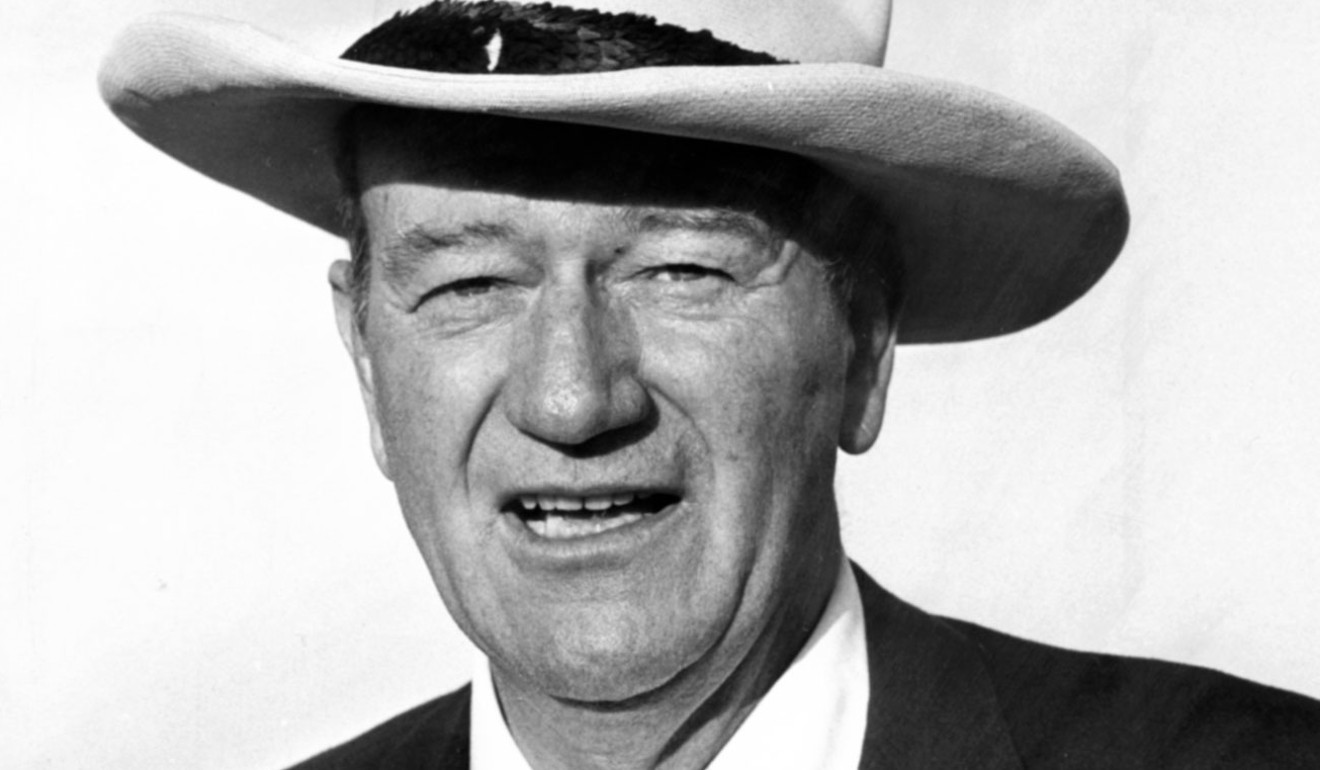
Bikini-clad Russian girl swims to Australian safety, and protests in Beijing: past headlines
- A journey back through time to look at significant news and events reported by the South China Morning Post from this week in history
A bikini-clad Russian girl swimming to freedom in Australia and a Hong Kong teenager cross-dressing to get a job made the headlines four decades ago this week.
January 14, 1979
● Hollywood film legend John Wayne had his entire stomach removed in a nine-hour operation, following the discovery of a cancerous growth. Wayne, 71, was in satisfactory condition after his long ordeal. He had had open-heart surgery less than a year earlier, and part of a cancerous lung removed 14 years earlier.
January 15, 1979
● A hundred angry Chinese peasants shouting, “We’re tired of being hungry” and “Down with oppression” tried to storm the residence of Chairman Hua Guofeng and air their grievances to him. It was the second time in a week that peasants had demonstrated in Beijing.
January 16, 1979
● Reports that Macau would be handed back to China, after Beijing re-established diplomatic relations with Portugal, were purely speculative, according to a statement issued by the Macau government. The two countries had had no diplomatic ties since 1949 and the renewed links were expected to benefit the enclave.

January 17, 1979
● An 18-year-old Russian girl in a bikini squeezed through the porthole of a Soviet liner and swam across Sydney Harbour to seek political asylum, a local newspaper reported. A Foreign Affairs Department spokesman confirmed that Lillian Gasinskayov had requested asylum, but there was no further information on the circumstances of her escape.
● Millions of Britons struggled to get to work through dense traffic jams as a nationwide rail shutdown inflicted new misery on their strike-plagued country. Many turned up hours late for work, and hundreds of thousands were estimated to have stayed at home because of a 24-hour strike by 28,000 train drivers. The stoppage wreaked havoc for the nation’s supply lines, which had already been severely disrupted by striking lorry drivers pushing for a pay rise more than four times above the government limit.
January 18, 1979
● More than 1,000 people were killed in a powerful earthquake that razed three villages in northeast Iran. The region had been rocked frequently by earthquakes, including one three months earlier which killed more than 20,000 people.
January 19, 1979
● A 16-year-old boy disguised himself as a girl to get a job as a hostess in a Wan Chai private social club, it was alleged in Causeway Bay Court. Before Magistrate W.A. Wilson, the boy faced two charges of obtaining a pecuniary advantage by deception and of giving false information to a police officer.
● Tens of thousands of Parisians arrived home late from work because a stray German shepherd dog took refuge under a Metro train. The incident coincided with rush-hour services and caused major disruption to the subway’s services.
January 20, 1979
● Four men armed with pistols and knives escaped with HK$1.9 million in cash only moments after the money had been withdrawn from a Mong Kok bank. In a raid, the men snatched three metal containers and two shotguns from three security guards who were escorting the money. They also managed to outrun two patrolling policemen.
● The Philippine government ordered the deportation of eight Chinese women to Hong Kong for alleged prostitution. The Philippine Immigration Department said the women were part of a syndicate organised to take advantage of tourists and businessmen in Manila. But news reports alleged that the action was the latest development in a tit-for-tat immigration argument between Hong Kong and Manila.
● Thousands of British housewives started hanging yellow dishcloths from their windows to protest against an ongoing lorry drivers’ strike that had disrupted daily supplies, including of some food items, across the country. Although the situation was bad, prime minister James Callaghan decided against declaring a state of emergency. One of the emergency measures would have involved the use of the British Army to get supplies of animal feed and other vital supplies moving.
Remember A Day looks at significant news and events reported by the Post during this week in history

